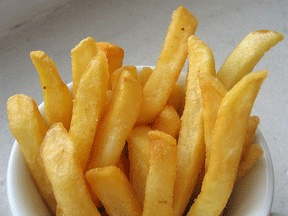The Question: When Is a French Fry More Than Just a Potato?
A recent tax dispute in Alberta has turned the humble french fry into the center of a complex legal debate. At the heart of the matter lies the interpretation of when a raw potato, processed into a frozen french fry, transitions from food manufacturing to storage and market preparation—distinctions that affect tax assessments.
Cavendish Farms, a prominent potato processor, challenged the taxability of equipment used for packaging and automated storage at its Lethbridge plant. The company argued that these components were integral to the production process and thus should be exempt from property tax under Alberta’s regulations for machinery and equipment.
However, the City of Lethbridge assessed the equipment as taxable, contending that processing was complete once the potatoes were frozen into french fries, prior to packaging or further freezing. This argument was upheld by the Composite Assessment Review Board (CARB), whose decision sparked a lengthy legal battle.
The Legal Fries (and Layers)
The Alberta Court of King’s Bench ruled against Cavendish Farms in late 2022, drawing a line between production and market readiness. Justice Johnna Kubik emphasized that the CARB had reasonably concluded:
- Processing ends when the french fries are frozen and bagged.
- Further freezing and storage, though essential for quality control, fall under post-production activities and are assessable as taxable improvements.
Key evidence included the physical characteristics of the packaging and storage machinery. The equipment was bolted to the floor, making it a fixed improvement rather than removable machinery—a critical factor under Alberta’s tax rules.
Why This Matters
For farmers, agronomists, and agricultural engineers, this case underscores the need to clearly define production phases in modern agriculture. The line between manufacturing and market preparation becomes increasingly blurred as automation and advanced technologies transform food processing.
For municipalities and businesses alike, the implications are significant. Tax assessments based on infrastructure use can affect operating costs, investment decisions, and even plant locations. As food production facilities grow in complexity, so too will the challenges of interpreting tax regulations.
A Decision with Long-Term Implications
The Alberta court’s ruling establishes a precedent that emphasizes function over form in taxation disputes. For Cavendish Farms, this means their packaging equipment and automated storage systems remain taxable. For the broader agricultural and food production industry, this case highlights the importance of distinguishing between production and post-production processes in compliance with local tax laws.
As food manufacturing evolves, stakeholders must adapt not only to technological advancements but also to the legal frameworks that govern their operations. Whether this decision is the final word or just another chapter in the legal “hash” over french fries, it serves as a critical lesson in the interplay between law and agriculture.







